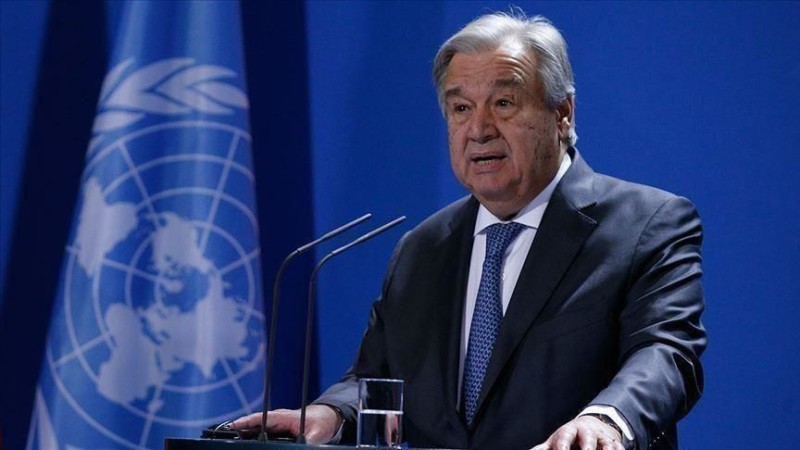UN Warns of Environmental Time Bomb Off Yemen's Coast


The United Nations warned Wednesday that an old, neglected oil tanker moored off Yemen’s Red Sea coast is at risk of causing an environmental "catastrophe” if its experts cannot immediately attend to the deteriorating vessel.
"Time is running out for us now to act in a coordinated manner to prevent a looming environmental, economic and humanitarian catastrophe,” Inger Andersen, head of the U.N. Environment Program, told a meeting of the Security Council. “Therefore, it is imperative that access be granted to the FSO Safer to assess and inspect the current state of the vessel so evacuation of the oil can be safely done.”
Anderson said the 44-year-old tanker is carrying more than a million barrels of crude oil, which is at risk of leaking or completely spilling into the Red Sea. She said that is four times the amount the Exxon Valdez dumped into Alaska’s Port William Sound in 1989, in what was a catastrophic spill.
No maintenance in five years
The Safer is moored 60 kilometers northwest of Hodeida port, which has been under rebel Houthi control since Yemen’s civil war began in 2015. The vessel has not undergone any maintenance during that time.
Anderson said the ship is at risk of its cargo leaking out because of corrosion or spilling out completely in an explosion if gas in the cargo tanks accidentally ignites.
International access became more urgent at the end of May, when seawater began leaking into the tanker’s engine room. Divers were able to contain the leak, but the fix is only temporary, and it is impossible to say how long it might hold.
The U.N. said 28 million people would be severely affected if there was a major spill, as it would close the lifeline port of Hodeida for several months, disrupt international maritime routes, contaminate 8,000 water wells, pollute hundreds of miles of farmland and release toxic fumes into the air. Djibouti, Eritrea and Saudi Arabia would also be affected.
“This would also deliver another severe blow to Yemen’s already embattled economy,” said U.N. humanitarian chief Mark Lowcock, who has warned the Security Council about the situation 15 times previously. “The resulting disruption would substantially accelerate recent trends that are already — once again — pushing the country towards famine.”
U.N. experts have been asking for access to the vessel for two years in order to assess its safety, do light repairs and eventually tow it to a safe port to remove the oil. But the Houthis have repeatedly reneged on promises to allow that to happen. Last week, they wrote to the U.N. saying they would accept the mission, which, if they follow through, could happen within a few weeks.
Yemen’s foreign minister addressed the virtual meeting of the Security Council and urged members to put pressure on the Houthis to keep their promise and avoid the “looming catastrophe.”
“Send the Houthis a strong signal that this time, they must comply,” Mohammed Al-Hadhrami said.
After the meeting, German Ambassador Christoph Heusgen, council president, said the council was deeply alarmed at the “growing risk” of a rupture or explosion. He said the Security Council called on the Houthis to grant unconditional access to the Safer as soon as possible, including facilitating all entry permits and logistical arrangements.
The government of Yemen President Abdu Rabu Mansour Hadi, with the support of Saudi Arabia, has been fighting the Iranian-backed Houthi rebels since 2015 for control of the country. More than five years of war has pushed the Middle East’s poorest country to the brink, with about four of every five people in need of humanitarian assistance.

RIYADH — United Nations Secretary‑General António Guterres has described recent developments in Yemen’s Hadramout governorate as…

SANAA — Yemen’s Houthi movement has denounced United Nations Secretary‑General António Guterres, accusing him of meddling in the…

Aden — Yemen’s Presidential Leadership Council members Aidarous al-Zubaidi and Tareq Saleh underscored the need to unify military and p…